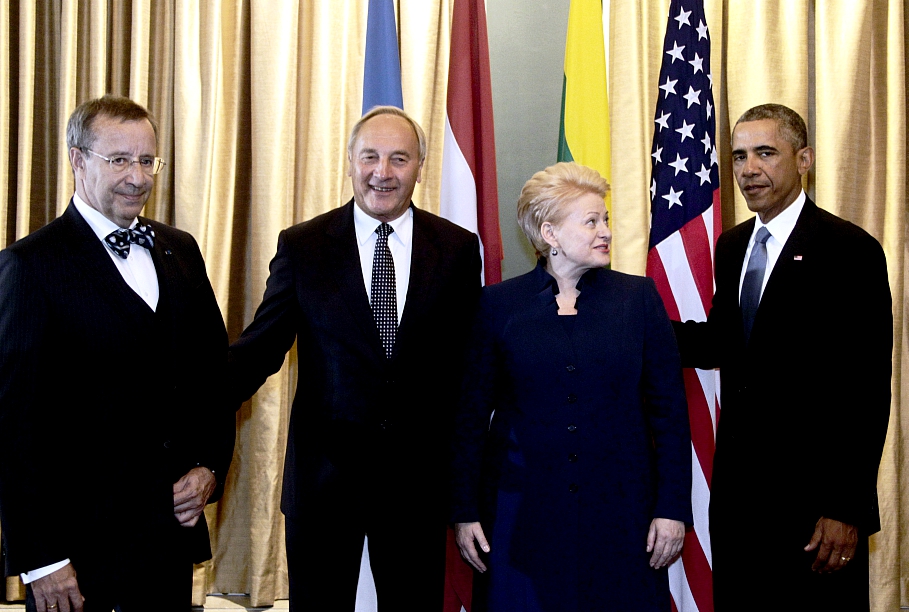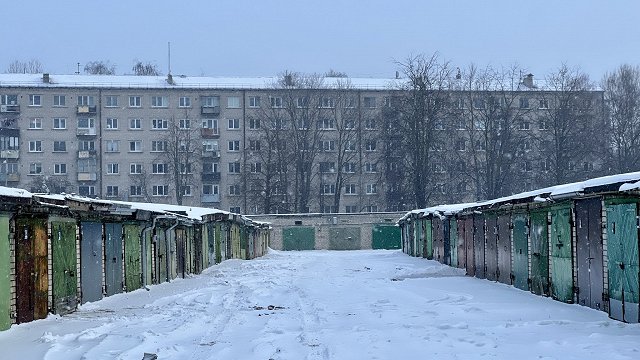In little more than 5 months, Latvia will have a new President – or maybe the current one in a second term.
You might argue it's presumptuous of me to even comment on this matter: after all I am not a Latvian citizen, so I don't get a vote in deciding who becomes President. But then, neither do Latvian citizens, as the identity of the President is decided by parliamentary, not popular vote.
A Saeima vote to choose the President is not necessarily a bad thing. Estonia does something a little similar (though there, local government representatives also get a say), while Lithuania prefers a popular vote. The Latvian method has some democratic validity as it was after all the people that voted in the 100 deputies who will choose El Pres.
But that vote is a secret ballot, not an open one. Once they disappear behind the curtain of the voting booth, deputies can vote for whichever candidate they choose and have no obligation to declare or justify that choice.
Incidents in the past, when more MPs said they voted a certain way than there were votes recorded prove that some deputies lie about who they vote for.
In fact the current system is an invitation to deputies to say one thing, do another and face no censure: the very antithesis of open democracy.
The Latvian President arrives like a mysterious package gift-wrapped at the last minute by the Saeima. Over the course of the presidential term the tantalising layers of paper are gradually pulled off in a grand game of pass-the-parcel until, if we are lucky, by the time the next presidential decision comes around we have got to whatever is wrapped up in the middle.
So far Latvia has been lucky. The parcel has yet to reveal a rotten potato or squashed banana at its heart. As other commentators have noted, the Presidency seems to have a 'magical' effect on the incumbent. Vaira Vike-Freiberga was a near unknown when she took the Presidency and turned into an inspiring an intelligent leader.
Valdis Zatlers was assumed to be a pure patsy in the pocket of the oligarchs and ended up launching a brave but brief assault on their power-base.
Incumbent Andris Berzins has been sprinkled with stardust too. Another virtual unknown when elected – it surprised him more than anyone – he now looks more enthusiastic about the job than he did when he started. On several issues he has shown himself to be independent-minded. Like all his predecessors he has strengths and weaknesses. The public deserves to know about these qualities before a President takes office.
Relying on magic to keep working does not seem a wise policy.
Three parties in the current parliament have attempted to address the issue: the National Alliance, the Regional Alliance and For Latvia From The Heart all drew up proposals for reform, varying from popular ballot to open Saeima vote. But none stands much chance of making it into law as while seeing the need for reform, they couldn't put their heads together and come up with a workable joint proposal.
Meanwhile the Unity party is virtually silent on the issue as it obsesses about another Presidency entirely, which leaves the Greens and Farmers Union (ZZS) free to state their position, grounded in realpolitik (they usually end up holding the balance of power so the current system gives them huge leverage) but still of startling cynicism.
According to them the poor, timid deputies are so scared of a telling off from party bosses that they would be too intimidated to vote for their preferred candidate unless they could hide behind a curtain.
On that basis, being a ZZS MP is a bit like a childish nightmare in which you are chased by a ravening monster in the terrifying form of faction leader Augusts Brigmanis.
The simple answer to that objection is to make Presidential votes not only open but free so that party 'whips' do not apply.
The current Jack-in-a-Box method by which the President is selected has to change. That doesn't necessarily mean it has to be a popular vote, but it should mean that there is reasonable public debate about the potential candidates in the months leading up to the big decision in June and that the Saeima should be seen to take note of those debates.
Above all, as the elected representatives of the people, Saeima deputies should be obliged to make their support for a candidate a matter of public record. Any deputy too ashamed or scared to justify their vote should really consider another career.
Sadly, because of the way the election cycle is staggered, the public doesn't get another chance to voice its disapproval until the next parliamentary elections more than three years after the President is elected – by which time it's more a case of wondering who will be next to capture the castle rather than reflecting on what happened way back when.
So who will be the next President? Your guess is as good as mine, though funnily enough 'Piebalgs' begins with a 'P' too...
(Opinions expressed are the author's alone)





























